AI Applications
AI Video Ads? Meta’s MovieGen Could Be Creating the Ads You Can’t Escape
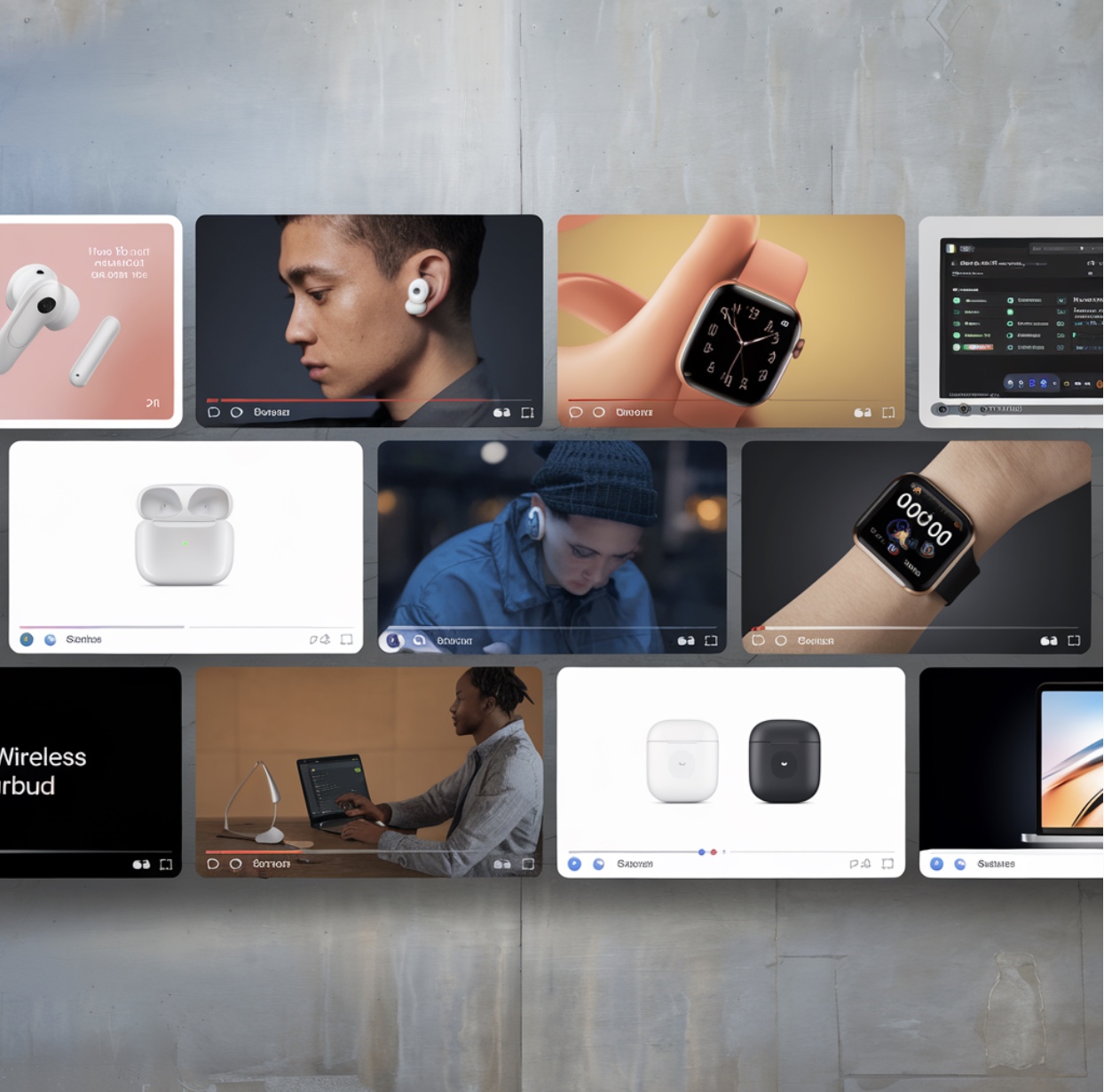
Are AI video ads about to take over our screens and, well, minds? Meta’s latest tool, MovieGen, may just make that possible. Although it wasn’t specifically designed for advertising, the potential applications for AI-generated video in marketing are clear. It seems that personalized, hyper-targeted ads are just around the corner, and in ways we’ve never seen before.
What is MovieGen?
MovieGen is powered by two advanced AI models:
- MovieGen Video: A 30-billion parameter system that generates 16-second, high-definition videos based on just a few words.
- MovieGen Audio: A 13-billion parameter audio model that creates realistic sounds, background music, and effects to match the video, syncing seamlessly with the content.
As outlined in their research paper, these models work together to both create dynamic, high-quality videos from scratch and edit existing ones. And, the fully-rendered video complete with audio.
The tools allows outstanding editing capabilities too. Want to change the background of your video? Simply type in a new description. Need to remove or add an object? MovieGen can localize those changes without affecting the rest of the scene.
Early users have demonstrated how the AI can alter a video of someone throwing a ball, replacing it with a watermelon while keeping the rest of the video intact. This level of precision makes MovieGen not just a video creation tool but an AI-powered editing suite that even non-experienced users can handle.
Why MovieGen Could Change Advertising Forever
Let’s talk examples. Say, a a fashion brand launching a new shoe line. With MovieGen, the brand can automatically generate hundreds of variations of the same ad, each one personalized based on:
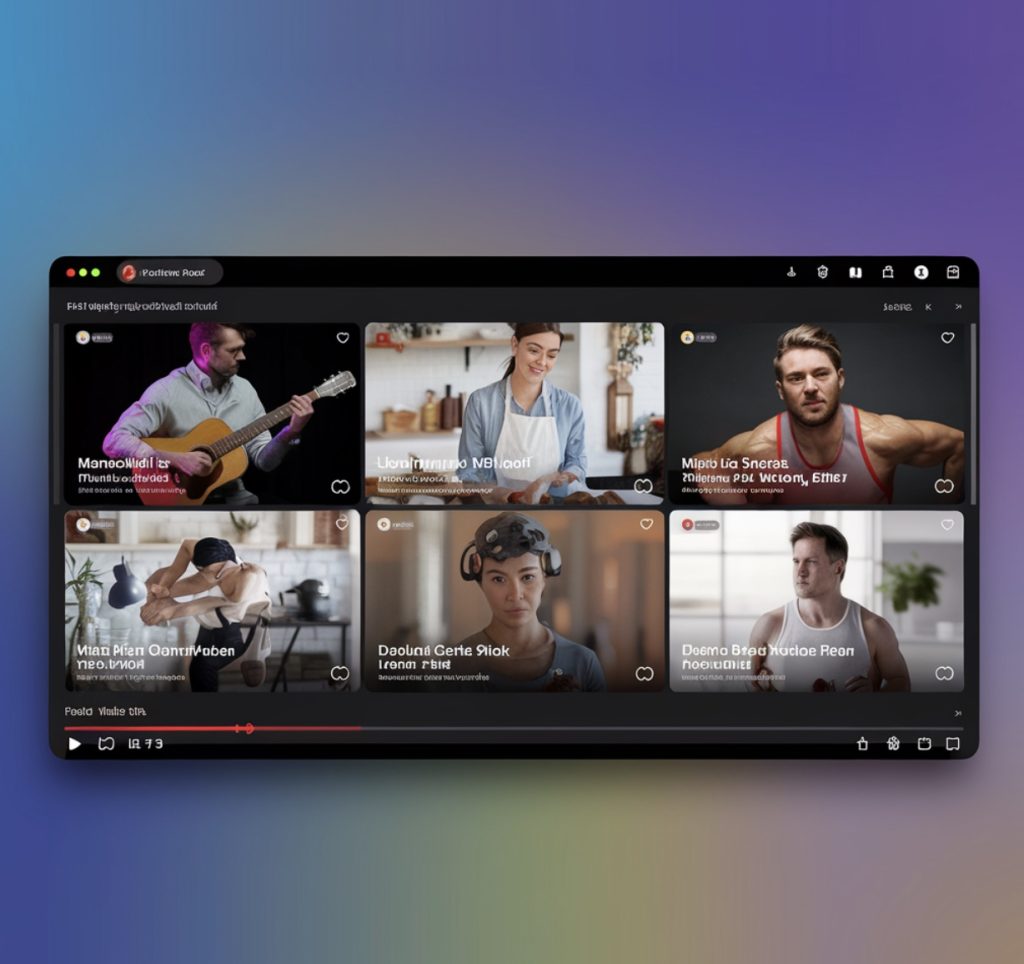
- Location: A user in California could see a sunny beach setting, while someone in New York might see a bustling city backdrop.
- Behavior: A fitness enthusiast might see the shoes in an active, sporty environment, while a casual user might see them styled in everyday, urban wear.
- Preferences: Users who favor minimalist design might see a sleek, modern presentation, while others might get a more dynamic, colorful visual experience.
MovieGen also allows brands to adjust ads in real-time, making it easy to test different styles and messages. No need for a big production team, as adjustments can happen instantly based on feedback or results.
Ads You Can’t Ignore? The Good, The Bad, and The Future
MovieGen doesn’t just make ads easier to create—it makes them harder to ignore.
These ads can be personalized in a way that feels almost impossible to look away from. You’ll start seeing ads that seem like it was made just for you—your favorite colors, the type of content you engage with, all synced with audio that grabs your attention.
Clearly, MovieGen and its competing tools like Runway, Pika, and other generative AI tools for video editing and creation represents a huge leap forward. Personalized ads that these tools allow to produce so easily will lead to higher engagement, better conversions, and lower production costs. And for Meta, MovieGen could supercharge its advertising business, giving brands tools to create immersive, interactive ad experiences across their platforms.
What’s inevitable? With AI-generated content flooding platforms like Instagram, Facebook, and WhatsApp, there’s a good chance we could be bombarded with ads so well-crafted for us that they’re inescapable.
Meta’s Ad Business is transforming to AI Video Ads Business?
Meta has long been a leader in data-driven advertising, but MovieGen could take it to the next level. With AI video and audio generation incorporated into their advertising tools, Meta could offer brands an all-in-one platform to:
- Create, edit, and optimize ad content in real-time.
- Reach users with hyper-personalized, highly engaging ads that are crafted specifically for them.
- Minimize production costs by eliminating the need for large-scale video shoots and post-production editing teams.
Meta’s MovieGen is here to change how ads are both made and delivered. With the ability to create thousands of personalized AI videos ads at once, the very essence of the way people interact with brands is likely to change dramatically. These ads won’t just be seen—they’ll be experienced, in ways that are immersive, dynamic, and extremely personal. For better or worse.
AI Applications
10 Uses of Artificial Intelligence in Mental Health
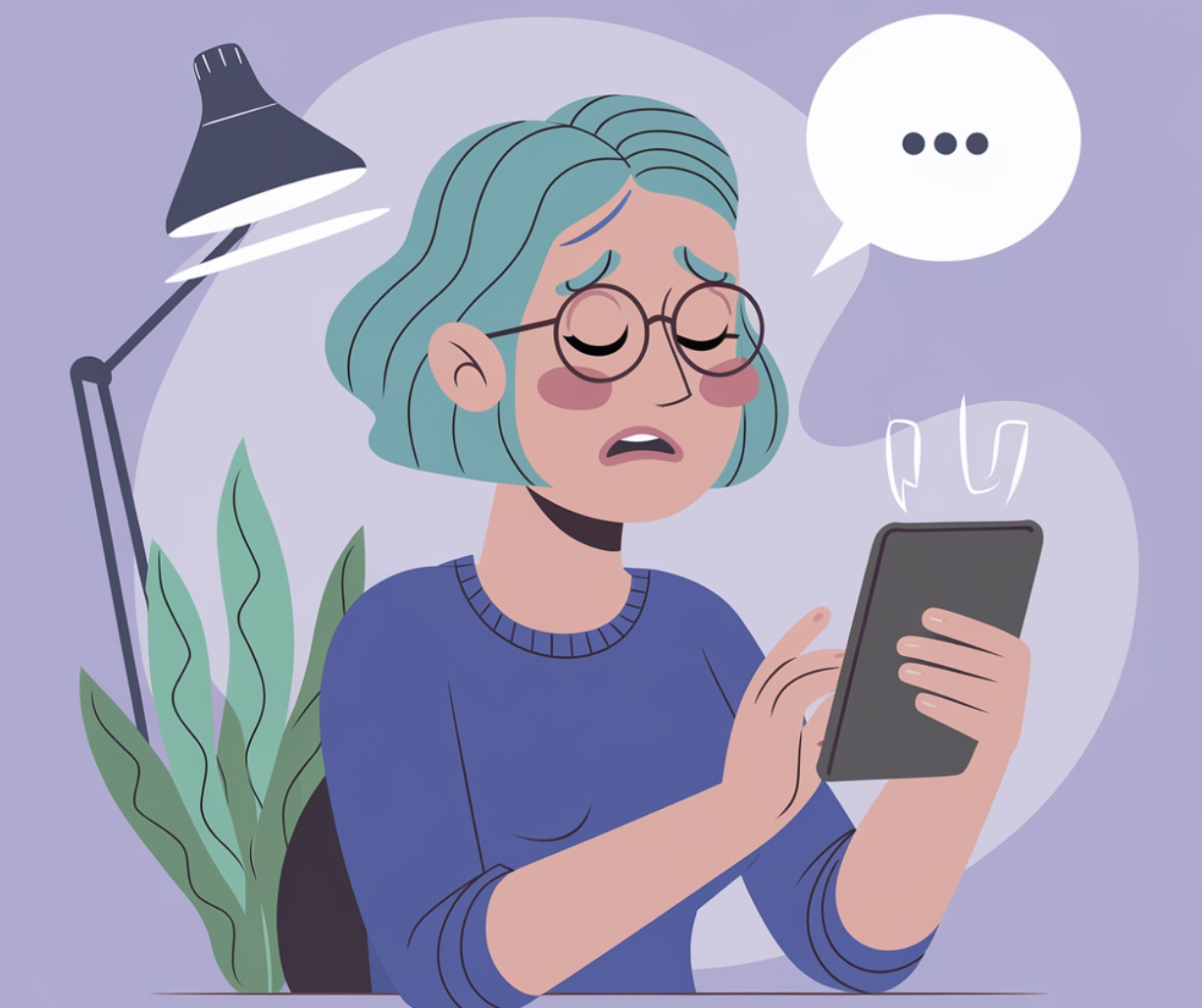
AI is already changing the way we live and work, and now it’s transforming mental health care, too. And, some say AI for mental health is actually making a real difference.
With the most obvious application being AI chatbots for mental health, of course. Using those, people can opt for a meaningful conversation with an AI chatbot instead of waiting weeks to see a therapist. And not just a chatbot – the one that understands how they feel and offers real support with managing anxiety, stress and depression.
The technological transformation couldn’t come at a better time. We are in the middle of a mental health crisis. In the U.S. alone, one in five adults—over 50 million people—experienced a mental illness in 2019-2020, according to Mental Health America’s 2023 report. Globally, around 280 million people are battling depression, based on the latest data from the World Health Organization. The demand for mental health care is massive, and traditional solutions aren’t just enough.
So, how exactly is Artificial Intelligence changing mental health care? Let’s dive into ten ways it’s revolutionizing the field.
1. Can AI Chatbots Really Help with Emotional Support?
Yes! AI-powered chatbots like Woebot and Wysa are designed to help people manage stress, anxiety, and other emotional challenges. These bots can have real conversations with you, offering techniques and exercises based on cognitive-behavioral therapy (CBT). They’re available 24/7, so whether you need a chat at 3 AM or during a lunch break, they’re there for you.
2. How Does AI Detect Mental Health Issues Early?
AI is great at spotting patterns—sometimes even before we realize something’s wrong. Researchers are developing AI tools that can analyze speech, facial expressions, and even social media activity to detect signs of depression or anxiety. For example, a study from JMIR Mental Health found that AI could identify early markers of depression just by analyzing social media posts.
3. Can AI Help Me Find the Right Therapy Faster?
Absolutely. AI can analyze your specific needs and help therapists personalize treatment plans. Platforms like Lyssn use AI to assess therapy sessions, giving therapists insights that help them adjust and improve their approach based on what’s working best for you.
4. Can AI Predict When Someone Might Be at Risk for Suicide?
Yes, AI can be a powerful tool for suicide prevention. By analyzing electronic health records and other data, AI models can identify people at high risk. A study in Nature Human Behaviour showed that AI algorithms could predict suicide attempts with impressive accuracy, giving healthcare providers a chance to step in early.
5. Can Virtual Reality (VR) Help with Mental Health Treatment?
It can! Virtual reality (VR) combined with AI is being used to treat conditions like PTSD and phobias through exposure therapy. Companies like Psious create VR environments where patients can safely confront and overcome their fears in controlled, virtual settings.
6. How Does AI Track Mental Health Trends Using Social Media?
AI is great at combing through large amounts of data, like social media posts, to pick up on mental health trends. This helps organizations like the World Health Organization monitor public mental health in real time, potentially identifying crises or spikes in anxiety and depression across communities.
7. Can AI Understand Emotions Through Voice or Facial Recognition?
Yes! AI systems can analyze your voice tone and facial expressions to detect emotions you might not even be fully aware of. For example, Emotion AI by Affectiva looks at facial cues to offer insights into your emotional state, helping people become more aware of their feelings.
8. How Do AI Apps Make Meditation More Effective?
Apps like Headspace and Calm use AI to tailor mindfulness and meditation exercises based on your progress. These apps learn what works best for you over time and can adjust sessions to better suit your mood and needs.
9. Can AI Improve Mental Health Research?
AI is making huge contributions to the research in the field by analyzing large datasets to uncover patterns and connections that humans might miss. Organizations like the National Institute of Mental Health (NIMH) are using AI to develop better treatments and interventions by studying complex mental health conditions more efficiently.
10. Can AI Help Train Mental Health Professionals?
It sure can! AI simulations and virtual patients are being used to train mental health professionals. Platforms like Kognito offer role-play simulations that help clinicians practice conversations about mental health, making training more interactive and practical.
Why Is There Such a Growing Need for AI in Mental Health?
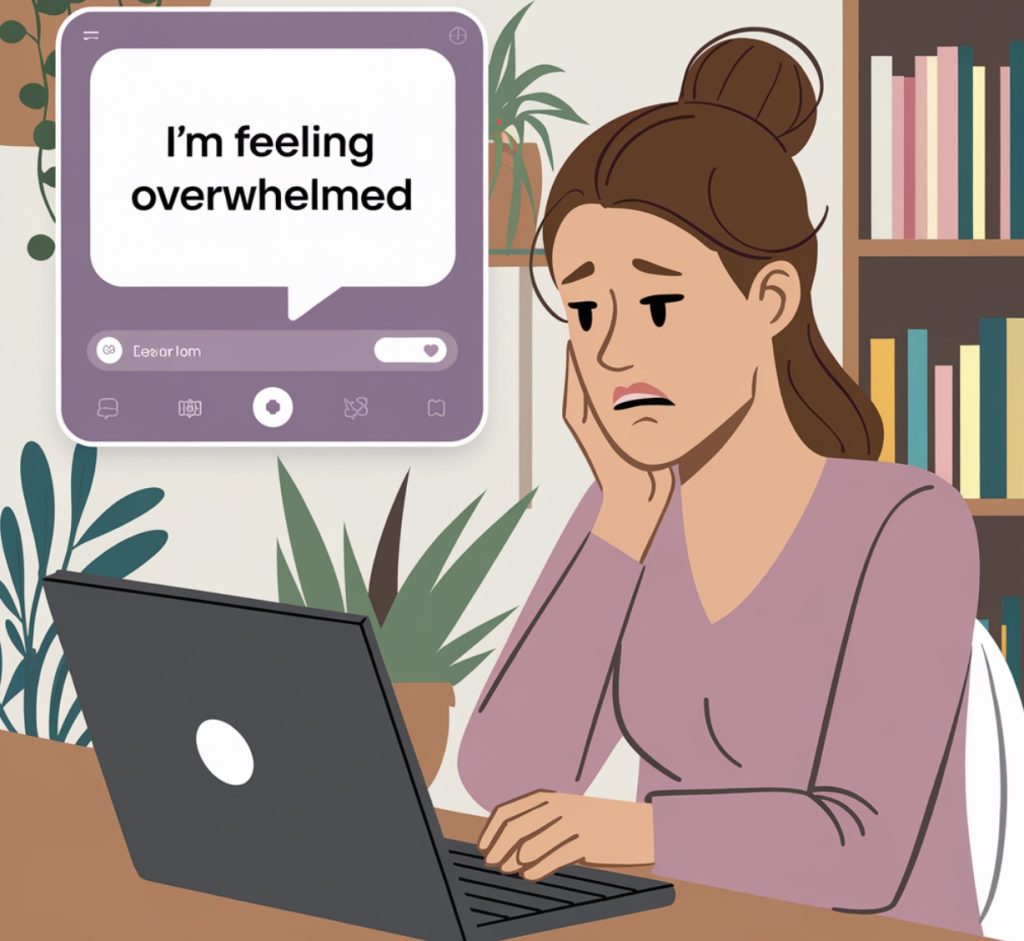
The COVID-19 pandemic triggered a global mental health crisis, with anxiety, depression, and stress becoming more widespread than ever. Traditional mental health services are overwhelmed, and getting an appointment with a psychiatrist can take months. And even when you do, the diagnosis is often subjective, which can delay the right treatment.
How Is AI Disrupting the Mental Health Space?
AI offers solutions that traditional methods can’t. It helps:
- Reach More People: Tools like chatbots are available anytime, anywhere, so more people can access mental health support, even those in remote areas.
- Reduce Stigma: AI tools can be used anonymously, which helps people feel more comfortable seeking help without the fear of being judged.
- Relieve Overburdened Systems: AI can handle many tasks—like monitoring symptoms or offering emotional support—freeing up professionals to focus on more complex cases.
The future of mental health care lies in blending AI with human expertise. According to a review in the Journal of Medical Internet Research, while its potential to enhance mental health care is immense, we still need to address ethical concerns, such as privacy and the need for human empathy in therapy.
What’s Next for AI and Mental Health?
AI isn’t going to replace therapists, but it’s a fantastic tool to support both patients and mental health professionals. It can help make care more personalized, accessible, and effective for everyone. As long as it’s implemented responsibly, AI could be a key part of solving the global mental health crisis.
AI Applications
Microsoft Rolls Out AI Agent—The Digital Employees Taking Over Work
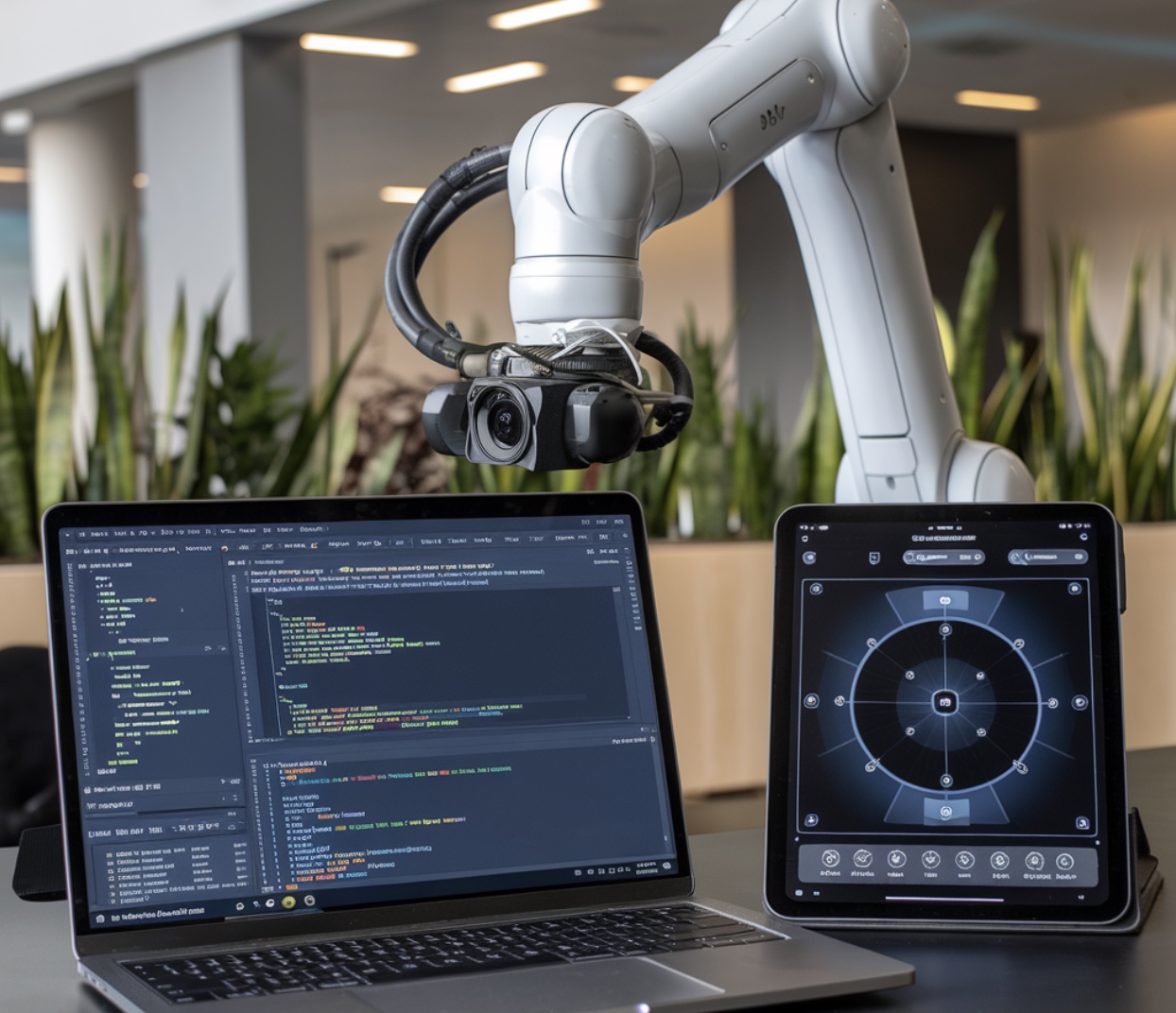
In the past few months, big players like Salesforce and HubSpot have launched AI-powered agents. Now, Microsoft is stepping in too a major announcement of AI agents through their Copilot Studio platform. AI agents, or AI employees.
So, what exactly are AI agents, and how can they help you? Let’s break it down.
What is Microsoft’s AI Agent in Copilot Studio?
Microsoft’s AI agents are like digital workers that can take over many tasks for you. Need help handling emails or customer requests? These agents can do that. Want someone (or something) to scan documents, prepare reports, or manage schedules? AI agents can handle those tasks, too.
So, what’s included in Microsoft’s AI agents?
- Pre-built templates: You can use templates for things like helpdesk support, HR tasks, or sales follow-ups. This means you don’t have to start from scratch.
- Custom agents: You can customize these AI agents to fit your exact needs. Can be processing customer inquiries or automating workflows. Like, anything you need.
- Rules and triggers: The AI agents can be programmed to respond automatically to events, like an incoming email or a customer request.
- Seamlessly integrated: Microsoft’s AI agents work with platforms like Salesforce and Microsoft Fabric, so they’ll fit right into your existing systems.
How are businesses using AI agents right now?
Here’s an example. McKinsey, a major consulting firm, is already using Microsoft’s AI agents. In their demo, the AI agent receives an email from a client requesting a meeting. The agent processes the request, checks their internal systems, and forwards everything to the right person. It even attaches all the necessary information. And it all happens automatically—just from an email.
More organizations like Clifford Chance, McKinsey & Company, Pets at Home and Thomson Reuters are too building their own customized agents to answer their corporate needs.
Microsoft has already launched Copilot Studio, but a more broad release is expected by mid-to-late 2025.
Why should you care about AI agents?
So, why should your business care about this new wave of AI agents? The answer is simple: time and cost savings.
Think about all the time spent on repetitive tasks—scheduling meetings, writing follow-up emails, or managing support tickets. These AI agents can handle it all. That means you and your team can focus on more important things, like strategy and innovation.
Here’s what AI agents can do for you:
- Save time by automating repetitive tasks.
- Reduce costs by taking over routine work that normally requires staff.
- Improve accuracy by performing tasks consistently without human error.
- Scale up quickly as your business grows without needing to hire more people.
What tasks can Microsoft’s AI agents handle?
AI agents are like having a digital assistant for your business. They can help with:
- Preparing reports and presentations
- Conducting competitor research
- Managing customer service inquiries
- Analyzing documents
- Writing code or monitoring system alerts
Imagine how much easier your workday would be with an AI agent handling these tasks for you.
Are AI Agents Replacing Jobs?
Of course, there are concerns about how AI might impact employment. Will these digital employees replace human workers? According to Charles Lamanna, a corporate vice-president at Microsoft, the goal is not to take jobs but to enhance them. AI agents are designed to handle the monotonous tasks, not the critical thinking and decision-making that humans excel at – at least for now. As Autogen AI agents, which are designed to debate and make decisions, continue to evolve, that could change in the future.
AI tools like these are being pitched as empowerment tools, helping employees become more efficient in their roles. Rather than replace workers, Microsoft sees AI agents as tools that allow people to spend more time on the meaningful aspects of their jobs.
The potential of AI agents is massive.
Especially as the AI industry is under pressure to prove that all the money invested in it will pay off. Investors have put billions into AI, expecting to see tangible results – not just in the tech advancement, but there’s a growing demand to see it directly improve business performance and generate a return on investment (ROI).
AI agents are one of the expected ways to show provide this. They can automate tasks, boost efficiency at anything from customer service to supply chain management.
But it’s not just about showing potential anymore—investors want to see real-world results. They’re looking for AI tools that can save money, improve processes, and increase revenue. The pressure is on AI companies to prove that these tools can work in everyday business, not just in controlled settings.
At the same time, AI needs to get even better to match human abilities. While AI agents can handle routine tasks, there’s still work to be done before they can fully take over more complex decisions. Closing this gap between what AI can do now and what it could do in the future is key to showing its full value.
Final Thoughts
It is now clear that AI agents and MAS will take over most of the repetitive work, reshape our economy the future of business.
But as with any technology, the true test will be how quickly businesses adopt these AI agents and integrate them into their daily workflows. Microsoft’s team envisions that AI agents will become as essential as personal computers in the workplace.
The question is: Are you ready to let digital employees take over the busywork?
AI Applications
The Generative AI Revolution in Games is Already Happening
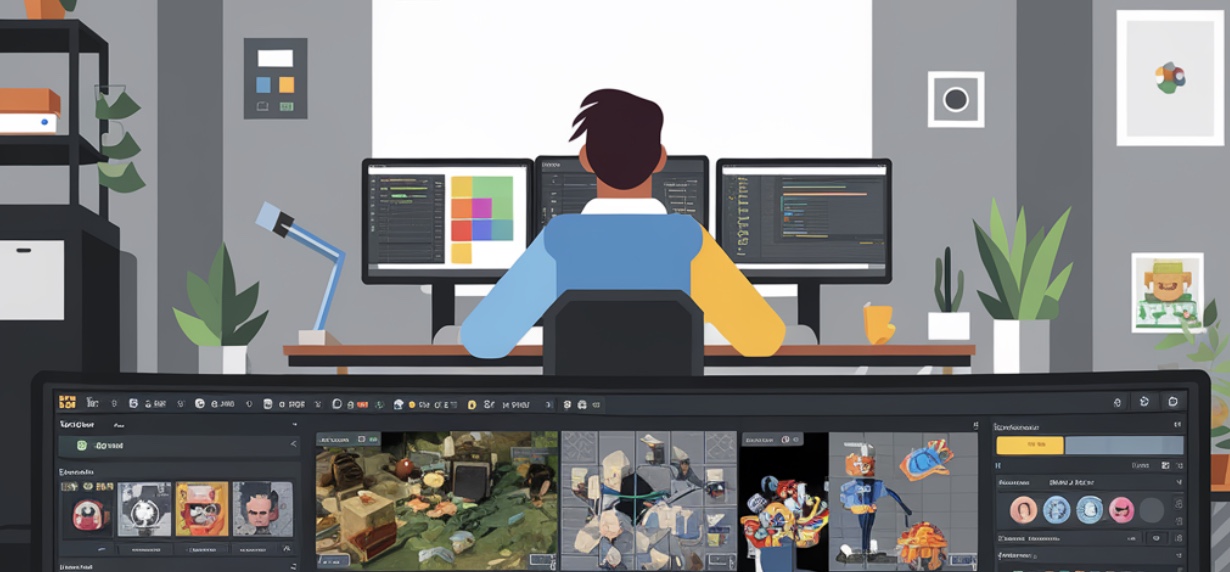
Game development has always been an incredibly complex and resource-intensive process. It requires years of work and massive budgets. That’s one reason why generative AI has found it tough to break into the industry. Unlike other sectors where machine learning models have swiftly integrated, game development demands a high level of creativity, real-time decision-making, and problem-solving, areas where AI has traditionally struggled.
But times are changing. The generative AI revolution in games is gaining momentum, with significant advancements that could reshape how games are made.
Andreessen Horowitz (a16z) predicts that generative AI will soon empower “micro game studios” of just 1-2 developers to produce commercially viable games, thanks to the new tools lowering the barriers to entry. AI can help with everything from creating 3D models to generating dialogue, which could lead to an explosion of innovative, smaller-scale games.
Companies are now leveraging machine learning models to generate characters, environments, and even storylines, reducing the time and effort required for development. Still, the journey hasn’t been smooth, with pushback from the gaming community and cautious optimism from thought leaders.
Why Game Development Is So Hard for AI

One of the biggest challenges in applying AI to game development is the sheer complexity of creating an interactive, real-time experience. Games are dynamic systems that require not just pre-designed assets but also the ability to react to players’ choices in real-time. This demands creativity, adaptability, and a deep understanding of how humans think and play.
Machine learning models, particularly generative AI, have traditionally excelled in areas like generating text (think ChatGPT) or creating art with Midjourney. But translating that into an interactive, immersive game environment? That’s a different story. AI must understand narrative flow, ensure gameplay balance, and even create worlds that feel alive—all areas where human designers have held a clear edge.
Major Developments in Generative AI for Games
Despite these hurdles, recent advancements in generative AI are starting to break through these barriers. Some of the most exciting developments include:
NVIDIA’s GameGAN: Revolutionizing Game Environment Generation
NVIDIA’s GameGAN has been a game-changer for AI in game development. This advanced AI model can generate fully playable game environments, learning from existing game data. One of its most impressive demonstrations was recreating the complex environment of Pac-Man, signaling a future where AI can design and generate entire game levels and worlds with minimal human intervention. GameGAN is at the forefront of automating game environment creation, which could drastically reduce the time and effort involved in game development.
OpenAI’s Codex

OpenAI’s Codex is widely known for its role in automating coding tasks, but its applications in game development are equally transformative. Game designers use Codex to streamline the logic and scripting needed to bring game mechanics to life. By automating coding processes, Codex can significantly reduce the time required to implement game features and mechanics, making the development process more efficient. Codex is particularly useful for smaller game studios looking to build complex game interactions with less manual coding.
Unity’s AI and Machine Learning Tools
Unity, one of the most popular game engines in the world, has integrated powerful AI and machine learning tools into its development environment. These tools assist developers in various tasks, from testing game mechanics to animating characters. Unity’s AI-powered systems help automate repetitive tasks, like procedural content generation.
In addition to the major players in AI-driven game development like Nvidia, Microsoft, and Unity, several innovative startups are making big strides in this space, leading the generative AI revolution in games. Some noteworthy companies include:
Scenario

Scenario is an AI tool tailored for game developers to create high-quality game art that aligns with a specific style. The platform allows developers to train AI models based on their unique art direction. Scenario’s flexibility lets users generate multiple versions of assets with detailed controls.
Promethean AI
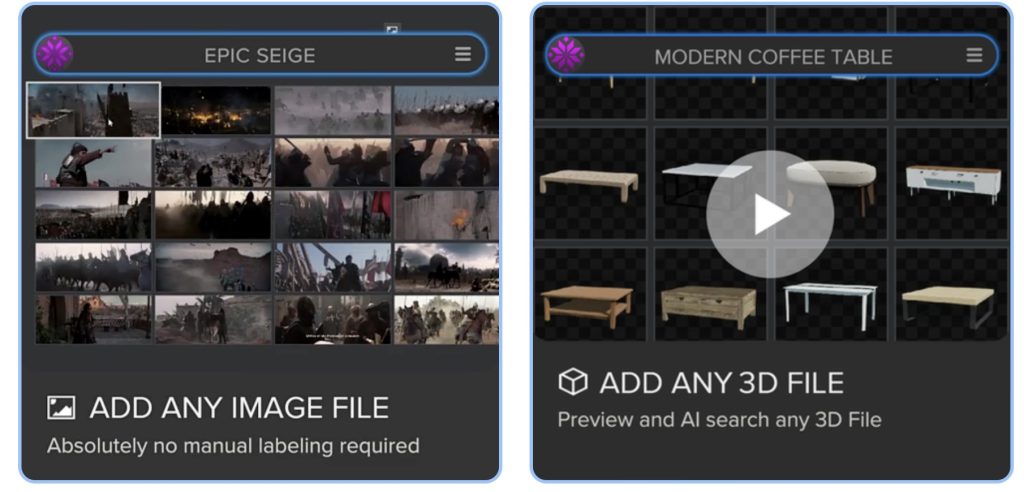
Promethean AI focuses on the automation of 3D environment generation, a traditionally labor-intensive part of game development. This tool allows developers to describe a scene, and the AI will generate a rich, detailed world based on that description.
Ludo.ai
Ludo.ai offers a powerful AI-driven system that adapts gameplay to match player behavior. By analyzing how users interact with a game, Ludo.ai adjusts the difficulty, pace, and elements of the game in real-time, creating a personalized experience for each player.
Inworld AI
Inworld AI provides game developers with tools to create NPCs (Non-Playable Characters) that react to player decisions and adapt to the environment in real-time. The AI-driven NPCs improve the immersion of games, making them feel more dynamic and alive. What’s most exciting, Inworld’s characters come equipped with cognitive abilities that make their behavior more nuanced, realistic and believable.
Rosebud AI
Rosebud AI simplifies game creation by transforming concepts into playable assets and code. Developers can input their ideas, and the AI will generate everything from sprites to functioning game environments. Rosebud’s system supports quick ideation, allowing developers to test and iterate game mechanics much faster than traditional methods.
What are Thought Leaders Saying on AI revolution in games?
We’ll be honest, it does stir up debates.
Tim Sweeney, CEO of Epic Games, has been vocal about the cautious integration of AI in game development. He believes AI has enormous potential but worries that over-reliance on it could stifle creativity. “AI can create worlds,” he said, “but humans are still the masters of storytelling and emotion.”
On the other hand, AI proponents like Mark Zuckerberg, whose company Meta is investing in AI for virtual environments, argue that AI can complement human creativity. He believes AI could allow smaller teams to create high-quality games, reducing the barriers to entry for indie developers.
Pushback from the Game Development Community
Despite these innovations, there has been significant pushback from traditional game developers. Many fear that AI-generated assets will lack the personal touch that makes great games stand out. Critics argue that no matter how advanced AI becomes, it can’t replace the human nuance required to create emotionally impactful experiences.
Moreover, some developers are concerned about job displacement. If AI can generate environments, characters, or even narratives, where does that leave game designers, artists, and writers? These concerns have led to a cautious approach in adopting AI, with most studios seeing it as a tool to assist, rather than replace, human talent.
A Mixed Future for AI revolution in Games
The generative AI revolution in games is underway, and it’s already starting to change how games are made. But while AI can handle repetitive tasks and generate assets quickly, the creative, emotional core of game design remains in human hands—for now. Thought leaders are split, and while the potential is there, the gaming community remains divided on how far AI should go.
As AI continues to develop, it will be interesting to see how it reshapes the landscape. Will AI be the creative tool that frees game developers from tedious tasks, or will it lead to a homogenized industry where everything starts to look the same? The answer likely lies somewhere in the middle.
-
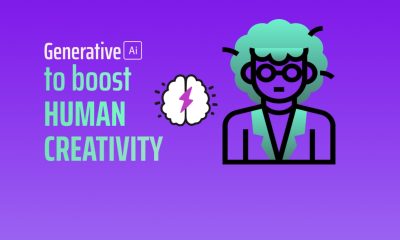
 AI Applications7 months ago
AI Applications7 months agoHow Human Imagination and AI Team Up to Create Awesome Content
-
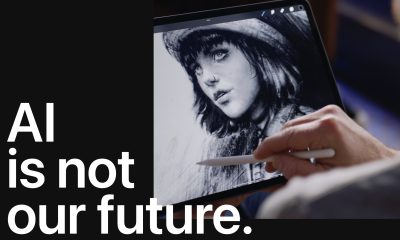
 AI Applications6 months ago
AI Applications6 months agoProcreate on Generative AI: “We’re never going there”
-
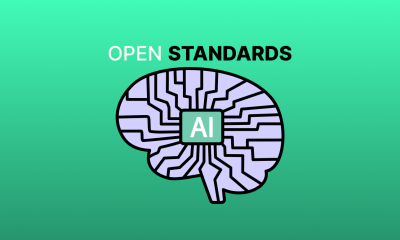
 AI Regulation6 months ago
AI Regulation6 months agoOpen Standards for Responsible AI: The Engine Driving Ethical Innovation
-

 AI Tools11 months ago
AI Tools11 months agoBest Generative AI Tools for Video Editing and Creation








